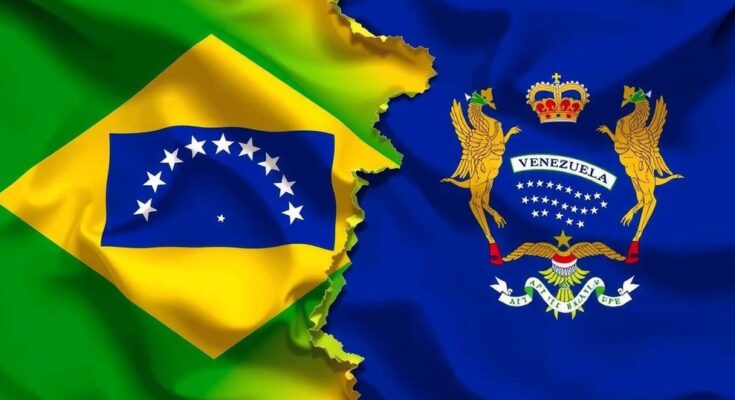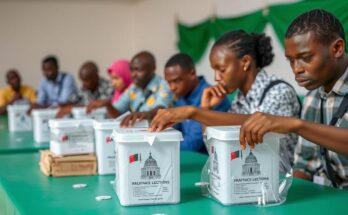On October 30, 2024, Venezuela recalled its ambassador to Brazil in response to Brazil’s veto of its BRICS membership application. This decision has been driven by heightened tensions following Venezuela’s disputed elections, with Brazil calling for more transparency in the electoral process. The Venezuelan government criticized the Brazilian diplomats’ actions and condemned former foreign minister Celso Amorim’s statements regarding the elections, thereby aggravating the diplomatic rift.
The Venezuelan foreign ministry announced the immediate recall of its ambassador to Brazil, Manuel Vadell, following Brazil’s veto of Venezuela’s application to join the BRICS group of emerging economies. This decision, voiced on October 30, 2024, came in the wake of a diplomatic dispute that has intensified due to Brazil’s stance under the administration of President Luiz Inacio Lula da Silva. Brazil’s denial of Venezuela’s entry into BRICS has been met with outrage from Venezuelan President Nicolas Maduro, who historically regards Brazil as a key ally. Venezuela’s foreign ministry expressed dissatisfaction with the actions of Brazilian diplomats, criticizing their rejection of Venezuela’s application despite the majority support of other BRICS members. The statement notably refrained from directly criticizing Mr. Lula, who had been unable to attend the BRICS summit due to a domestic accident. Instead, it highlighted the alleged “irrational behavior” of Brazilian officials in presenting a veto that was not reflective of the collective agreement among BRICS nations. The tension between Venezuela and Brazil has been exacerbated by the fallout from Venezuela’s controversial July 28, 2024 elections. These elections have been contested, with government-aligned electoral authorities declaring Maduro the victor while providing no substantial evidence of the results. Opposition parties assert that their candidate won decisively, prompting Brazil and several Latin American countries to withhold recognition of Maduro’s claimed re-election pending a transparent electoral review. Historically, President Lula has been an advocate for collaboration with Venezuela, although he has critiqued Maduro’s regime as “very unpleasant” and possessing an “authoritarian bias.” The Venezuelan government specifically condemned the comments made by former Brazilian Foreign Minister Celso Amorim, who suggested that the veto was justified on the grounds of Venezuela’s failure to conduct fair elections. In response, Venezuelan officials have escalated their rhetoric, labeling Amorim a “messenger of North American imperialism” and questioning the integrity of Brazilian diplomatic representatives. As a symbolic measure, the Venezuelan parliament president has requested that Amorim be declared persona non grata.
The diplomatic relations between Venezuela and Brazil have increasingly deteriorated, largely due to the controversy surrounding Venezuela’s recent elections and the implications of its application to join BRICS, a coalition of major emerging economies. The July 2024 elections in Venezuela were marred by accusations of fraud and lack of transparency, leading to heightened scrutiny from both regional and international observers. Brazil, under President Lula, previously had a close relationship with the Venezuelan leadership under Hugo Chavez, but Lula’s critical stance towards Maduro’s government indicates a shift in diplomatic policy, influenced by allegations of authoritarian governance and undemocratic practices in Venezuela. The political dynamics between these neighboring nations are complex, involving historical alliances and current geopolitical tensions.
In summary, Venezuela’s decision to recall its ambassador from Brazil represents a significant diplomatic fallout following Brazil’s veto concerning the country’s entry into BRICS. This action is emblematic of the broader strains in Venezuela’s relationships with several Latin American countries as a result of contested electoral legitimacy and shifting political alliances. The tensions underscore the fragile nature of regional politics in Latin America, particularly regarding governance issues and international partnerships.
Original Source: www.thehindu.com




